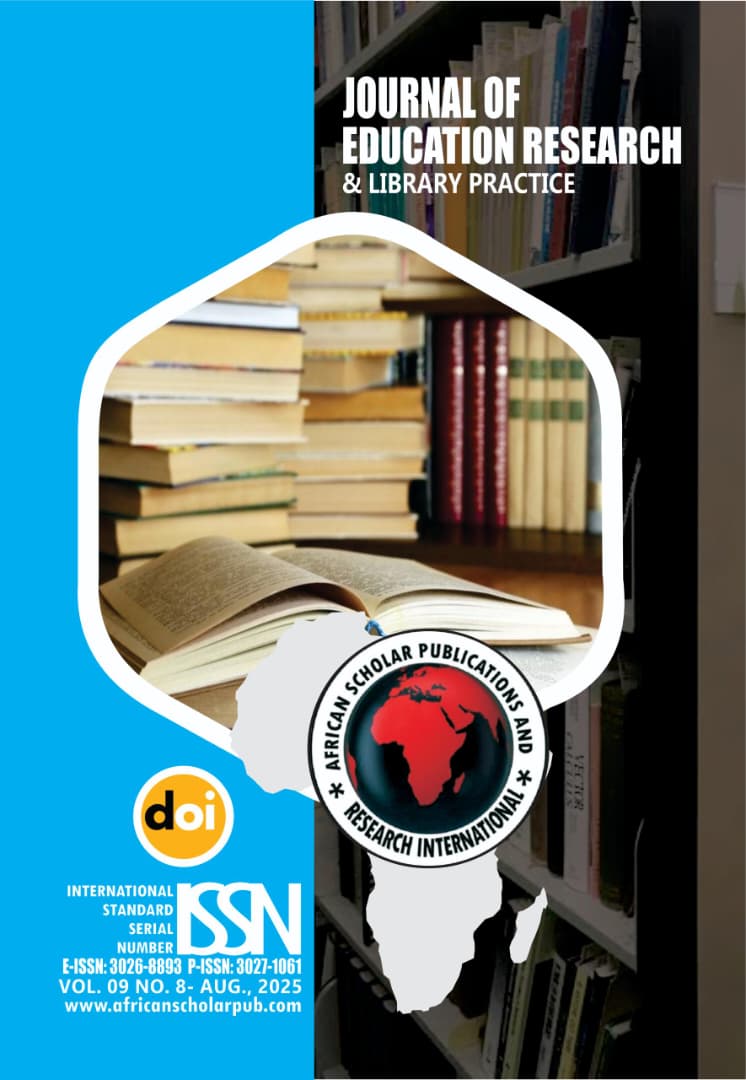Perception of Undergraduate Students on the Use of Flipped Classroom for Teaching Chemistry in Oyo State
Abstract
This study investigated undergraduate students’ perceptions of the flipped classroom approach in teaching chemistry across higher institutions in Oyo State, Nigeria. Specifically, examined perceived usefulness, ease of use, satisfaction, technological access, self-directed learning readiness, and instructor support. The study identifying the major challenges and opportunities associated with its implementation. A quasi-experimental design was adopted, involving a sample size of 150 students divided into treatment and non-treatment groups. Data were collected using questionnaire with a Cronbach’s alpha reliability coefficient of ≥ 0.70. Descriptive statistics such as mean and standard deviation were used to summarize perceptions. Inferential analyses such as ANCOVA and Student’s t-test were employed to determine the influence of predictor variables and compare group differences. The study’s findings revealed that students in the treatment group reported significantly higher perceptions of usefulness, ease of use, and satisfaction compared to the control group. ANCOVA results indicated that technological access, self-directed learning readiness, and instructor support significantly influenced students’ acceptance and engagement with the flipped classroom model. The t-test analysis highlighted a notable difference between the two groups, favouring the flipped classroom participants. Challenges identified included inadequate digital infrastructure, inconsistent instructor readiness and disparities in students’ technological competence, opportunities involved enhanced active learning, improved student engagement, and better conceptual understanding in chemistry. The study concluded that the flipped classroom approach holds promise for improving chemistry education in Oyo State’s higher institutions if supported with adequate technology, instructor training, and policies promoting blended learning adoption. The study therefore recommends among other that targeted investments in ICT facilities and continuous capacity building for both instructors and students.
Keywords:
Flipped Classroom, Chemistry Education, Technologica integration, Students Engagement, Blended LearningDownloads
Downloads
ACCESSES
Published
Issue
Section
License
Copyright (c) 2025 Adelakun, Tajudeen Abiodun, Prof. Olorundare, Solomon Adekunle, Dr. Makinde, Semiu Olawale (Author)

This work is licensed under a Creative Commons Attribution 4.0 International License.


















